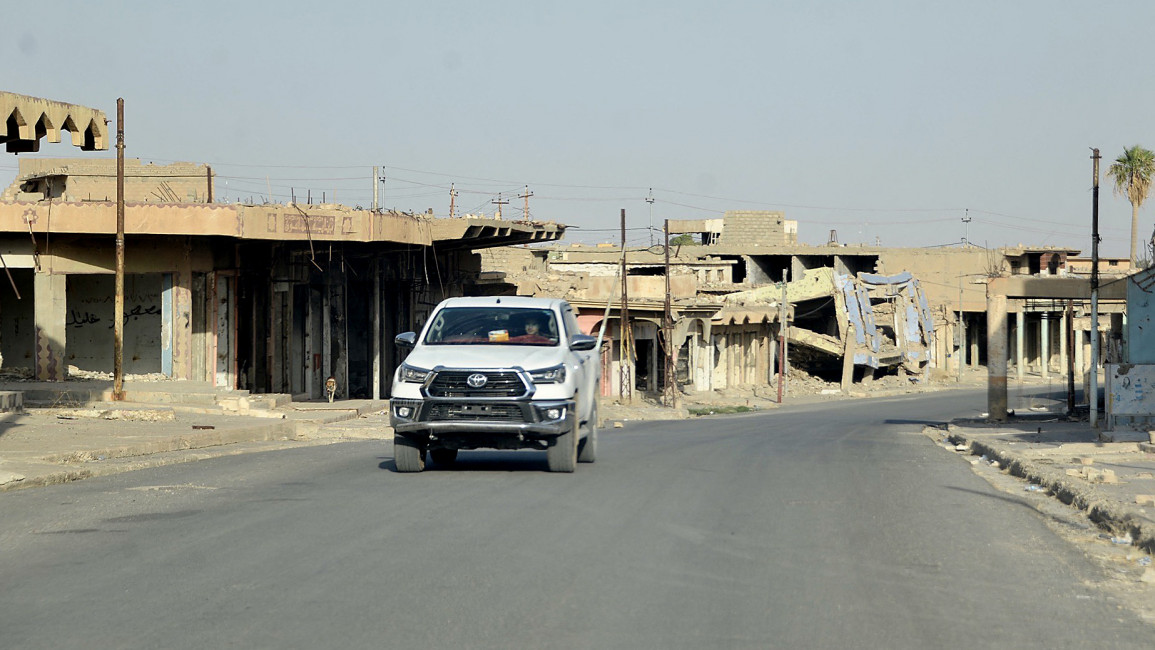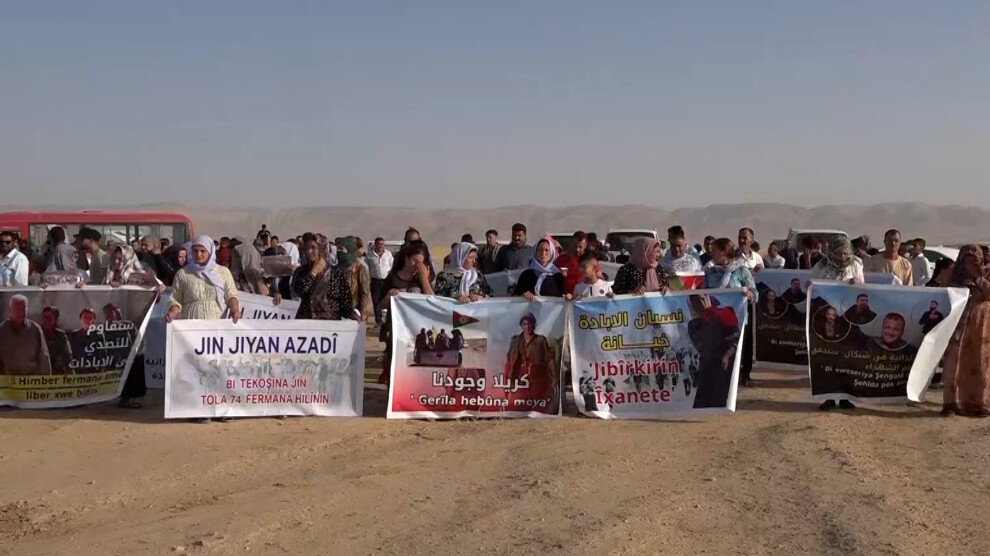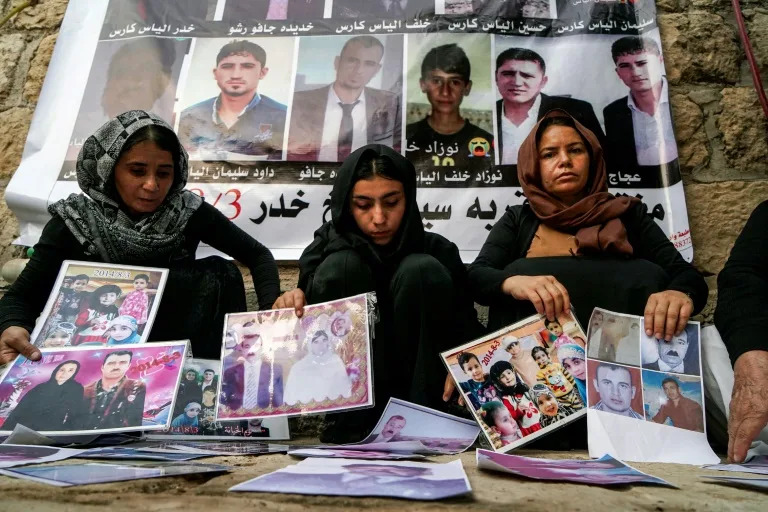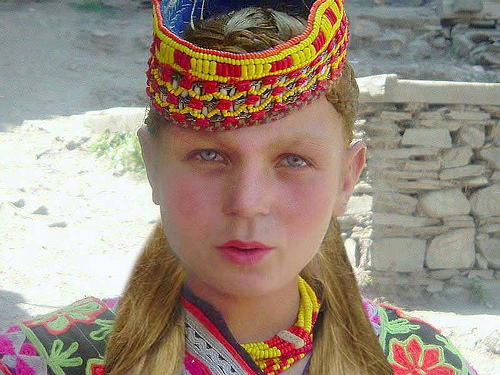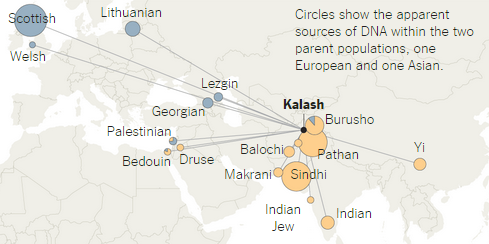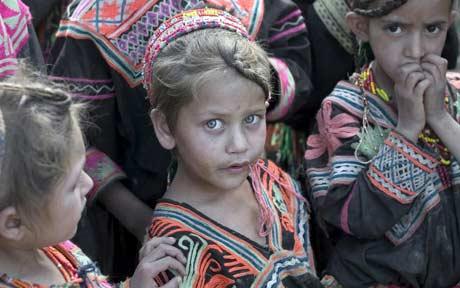By AFP
Published December 15, 2023

Attorney Amal Clooney (L), co-Founder is part of a legal team representing Nadia Murad (R)and some 430 Yazidi Americans in a suit against French company Lafarge
- Copyright AFP/File TIMOTHY A. CLARY
Some 430 Americans of Yazidi background and Nobel laureate Nadia Murad accused French conglomerate Lafarge of supporting brutal attacks on the population through a conspiracy with the Islamic State, according to a complaint reviewed Friday by AFP.
The civil suit, filed in a New York court by attorneys that include human rights lawyer Amal Clooney references a $778 million US Department of Justice fine and guilty criminal plea in October 2022 by Lafarge, which was acquired by Swiss company Holcim in 2015.
Yazidi plaintiffs asked the court to find Lafarge liable for violations of the US Anti-Terrorism Act and assess compensatory damages, plus attorneys fees.
Lafarge considers the matter “a legacy issue, which Lafarge SA is managing responsibly, a Lafarge spokesperson said.
The lawsuit recounts horrors inflicted by ISIS in a 2014 siege in which thousands of Yazidis were murdered and kidnapped, causing hundreds and thousands to flee and subjecting remaining Yazidi women to sales as sex slaves — a fate that befell Murad, who won the Nobel Prize in 2018.
The Kurdish-speaking Yazidis are an ethno-religious minority found mainly in Iraq that has over time absorbed elements of Islam and Christianity. Jihadists view the population as heretics.
The Yazidis suit points to $6 million in payments from Lafarge to ISIS in 2013 and 2014 to purchase raw materials from a Lafarge cement plant in Syria that continued to operate during the Syrian Civil War.
The plaintiffs’ complaint also references some $80.5 million that US prosecutors found benefited participants in the conspiracy, including ISIS and Lafarge.
“The money and cement defendants supplied ISIS went directly to ISIS’s operations at precisely the time it was committing acts of international terrorism, including the slaughter of innocent people such as the Yazidis,” the complaint said.
Plaintiffs in the case “are Yazidis who are US citizens,” according to the complaint.
“Many of them were, or had relatives who were, translators for the US. Army and served the United States. They are farmers, schoolteachers, housewives, and small business owners whose lives were upended on that fateful day in August 2014.”
Lafarge also faces a case in France dating to 2018 over charges of complicity in crimes against humanity.
Some 430 Americans of Yazidi background and Nobel laureate Nadia Murad accused French conglomerate Lafarge of supporting brutal attacks on the population through a conspiracy with the Islamic State, according to a complaint reviewed Friday by AFP.
The civil suit, filed in a New York court by attorneys that include human rights lawyer Amal Clooney references a $778 million US Department of Justice fine and guilty criminal plea in October 2022 by Lafarge, which was acquired by Swiss company Holcim in 2015.
Yazidi plaintiffs asked the court to find Lafarge liable for violations of the US Anti-Terrorism Act and assess compensatory damages, plus attorneys fees.
Lafarge considers the matter “a legacy issue, which Lafarge SA is managing responsibly, a Lafarge spokesperson said.
The lawsuit recounts horrors inflicted by ISIS in a 2014 siege in which thousands of Yazidis were murdered and kidnapped, causing hundreds and thousands to flee and subjecting remaining Yazidi women to sales as sex slaves — a fate that befell Murad, who won the Nobel Prize in 2018.
The Kurdish-speaking Yazidis are an ethno-religious minority found mainly in Iraq that has over time absorbed elements of Islam and Christianity. Jihadists view the population as heretics.
The Yazidis suit points to $6 million in payments from Lafarge to ISIS in 2013 and 2014 to purchase raw materials from a Lafarge cement plant in Syria that continued to operate during the Syrian Civil War.
The plaintiffs’ complaint also references some $80.5 million that US prosecutors found benefited participants in the conspiracy, including ISIS and Lafarge.
“The money and cement defendants supplied ISIS went directly to ISIS’s operations at precisely the time it was committing acts of international terrorism, including the slaughter of innocent people such as the Yazidis,” the complaint said.
Plaintiffs in the case “are Yazidis who are US citizens,” according to the complaint.
“Many of them were, or had relatives who were, translators for the US. Army and served the United States. They are farmers, schoolteachers, housewives, and small business owners whose lives were upended on that fateful day in August 2014.”
Lafarge also faces a case in France dating to 2018 over charges of complicity in crimes against humanity.
